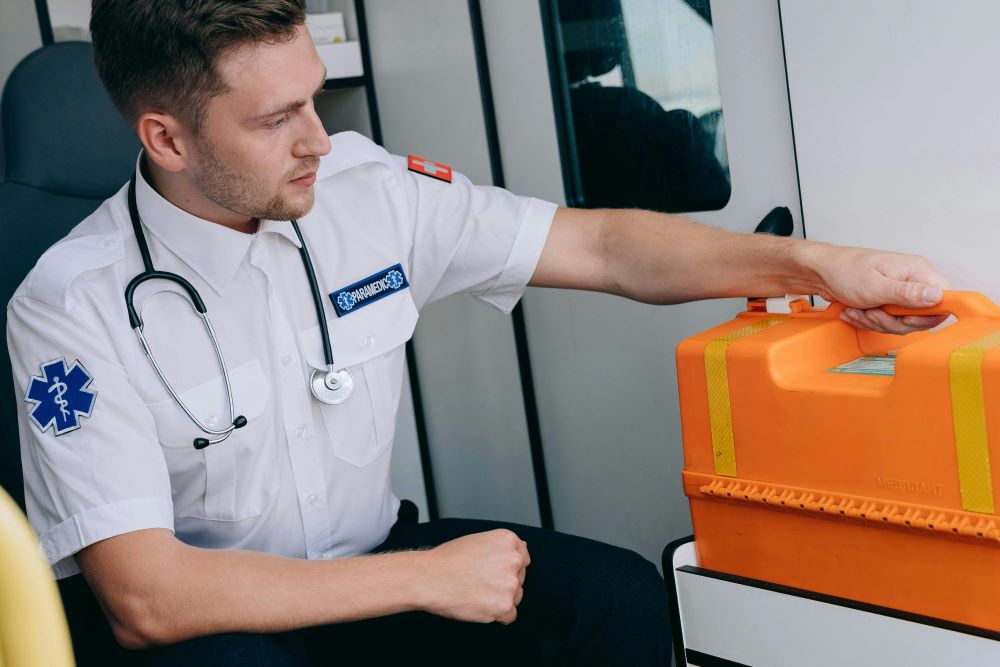Full recovery, rather than short periods of downtime, can help these professionals reset.
The demands faced by emergency medical professionals can be intense and unrelenting. These individuals often step into situations marked by uncertainty, urgency, and life-or-death consequences. The body’s natural stress response— expressed primarily through the release of adrenaline and cortisol—continually kicks in to meet the challenges of high-stakes scenarios. While this response is adaptive and necessary in the situations they face, repeated exposure without setting aside time for adequate recovery periods can take a serious toll on a person’s well-being.
A recent study explored how pre-hospital emergency medical providers—paramedics and doctors—react to simulated high-stress scenarios in training environments. Conducted by researchers from Northumbria University and James Cook University Hospital, the study provides new insights into the physiological and psychological strain experienced in these professions. By examining psychobiological functioning across ten days of high-fidelity training and a subsequent recovery period, the researchers were able to observe the profound impact of stress and the critical need for downtime.
The study used realistic simulations of emergency events such as road accidents, active shooter scenarios, and water rescues. These scenarios pushed participants to engage in the same skills and coping mechanisms they would in actual fieldwork. The results revealed clear spikes in heart rate, anxiety, stress levels, and cortisol secretion during training days, as compared to the recovery weekend. Unsurprisingly, training days that demanded greater physical and mental exertion saw heightened stress responses and reduced perceptions of control among participants.

What makes these findings particularly significant is their parallel to real-life emergency care. In the field, medical professionals often encounter back-to-back critical situations, with little chance to reset. Over time, this pattern of frequent and prolonged stress activation, sometimes referred to as the “fight or flight” response, can lead to burnout, a condition already reported by more than half of emergency care providers. Burnout not only impacts individual well-being but also threatens the quality of care provided to patients.
Interestingly, the controlled training environment provided an ideal opportunity to study these dynamics without the unpredictability of real-world emergencies. While actual fieldwork involves countless variables, the structured setting of high-fidelity simulations allowed researchers to pinpoint how specific stressors influence physiological and emotional responses.
Recovery, as highlighted by this study, is not merely about resting. It is about allowing the body and mind to fully recalibrate after periods of heightened demand. Without recovery periods, the constant activation of stress mechanisms can exhaust the body’s resources and diminish coping abilities over time. This can also lead to weakened immunity, increasing the chances of developing sicknesses. These findings emphasize the value of incorporating intentional recovery strategies into the routines of emergency medical professionals, both during training and in everyday practice.
The implications of the study extend beyond individual care providers to the broader healthcare system. Institutions employing emergency personnel should consider policies that support regular breaks, mental health resources, and manageable workloads. Promoting an environment where recovery is viewed as essential rather than optional could dramatically improve not only staff well-being but also patient outcomes.
While the focus in these stressful environments often lies on immediate patient care, it is just as important to address the long-term sustainability of the professionals delivering that care. By taking steps to prioritize recovery, the field can help ensure that those entrusted with saving lives are supported in safeguarding their own health and resilience so they can continue to do so.
Sources:
Recovery periods important to maintain the health and well-being of medical professionals
Assessing the psychobiological demands of high-fidelity training in pre-hospital emergency medicine


Join the conversation!